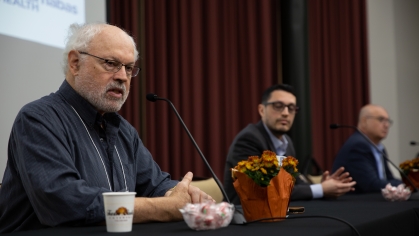Rutgers Research Bridging Gaps in Alzheimer’s Risk Among South Asian Populations

Researchers at the Krieger Klein Alzheimer’s Research Center at Rutgers Brain Health Institute are launching a pioneering study to better understand the characteristics that place South Asian populations at heightened risk for Alzheimer’s disease.
The study is recruiting individuals ages 45 to 70 with ethnic or racial backgrounds from the South Asian subcontinents, who have one or more parents with Alzheimer’s disease and related dementias.
Different populations exhibit unique risk factors for Alzheimer’s disease, but little is known about the specific characteristics that place South Asian populations at potentially heightened risk for Alzheimer’s disease. This is concerning because of the elevated prevalence of Type 2 diabetes within South Asian communities, which substantially increases the likelihood of developing Alzheimer’s and related dementias.
The study will delve into various factors associated with Alzheimer’s disease, including genetic predisposition, lifestyle choices (including physical activity, nutrition and sleep), socio-economic factors and social determinants of health. Participants will undergo comprehensive assessments every two years, encompassing surveys, cognitive and language assessments, motor function tasks, blood tests, physical and neurological exams, as well as brain imaging.
“We feel that it is our obligation from a public health impact to generate evidence that can be translated into treatments and early diagnostics tailored to South Asian communities,” said Michal Schnaider Beeri, director of the Alzheimer’s Research Center. She emphasized the high significance of this research, noting that it presents a unique opportunity for individuals to contribute to vital research aimed at understanding and addressing the potential elevated risk of Alzheimer’s disease within South Asian communities.
Participation in the study will play a pivotal role in uncovering unique risk and protective factors, ultimately leading to treatments and prevention strategies for Alzheimer’s disease.
Participants will be compensated for their time and effort. To find out more or participate in the study email adrd@bhi.rutgers.edu.



